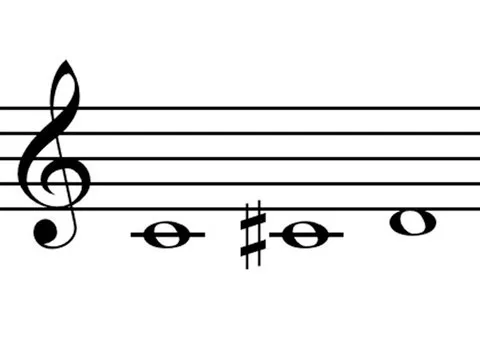If you sit for a while and try to think about doing something no one has ever done, you will probably be disappointed. The chances or probability that someone has written a piece about how to brew beer is very high. With a quick google search, you will find countless articles about how to brew beer. If you think about something, and you think it is original, the chances are very high that it has already been done. (If you want to skip the philosophy part, see paragraph 3 for the beer brewing part.) In 2013 I thought about brewing beer, and to my amazement, there are countless websites of homebrewers. I know brewing beer is not the best way to be "original", but I was naive. Try to think about a storyline for a book or movie and you will be amazed at how tough it is to be original. This is one problem in art and original thinking today: everything has been done, and that what has not been done is probably really weird. On the back of a book I recently read, a quote was given: do something no one has ever done, or do things that have been done in a different way. Something in that line. This is a real problem for content creators: how can you today still be original and not too "weird" and way out? This is in a way the problem of authenticity. What is authenticity? Wikipedia (1) says that "authenticity is the degree to which one is true to one's own personality, spirit, or character, despite external pressures." To be true towards oneself you need to be original in a way. How can you feel satisfied with being just the same as the person next door? Staying true to physics (or mathematics) in a way, there can only be a finite number of ways to do x. I am thinking here particularly of music. There is only a finite amount of notes that can be played without being the same, but this number is so big that we won't run out of new music soon. But we have so many songs that sound the same. Michael Stevens from Vsauce did a great video on this topic (2). The conclusion is that we gravitate towards certain music that has a similar structure. It is thus not because music is running out of notes that can be played, but rather that we want to hear certain types of notes etc. This introduces a new problem: we don't always want to be original, because it forces one to stand in the light where everyone can see you. If you stand in the shadow of other, people won't notice you.
The problem of authenticity has two parts: staying true to yourself, and secondly staying true to yourself by being original. As mentioned above, being original today is not easy for two reasons: firstly, because there are only finite ways of doing something, and secondly, because if you try it will put you in a spotlight that might be uncomfortable. These problems of authenticity have been dealt by a lot of people and philosophers. What comes to my mind is JP Sartre's bad faith. If you don't act authentically, you will act in bad faith. What this means is simply if you need to make a choice, and you abstain from making that choice, you are not living authentically. His famous example is a man and a woman sitting at a restaurant. The man takes the woman's hand. If she pulls away she affirms that she does not want the man (sexually), if she returns the gesture she affirms his intentions. But if she only looks at his and her hand, i.e. not making a choice, she is acting in bad faith. This can be translated towards our living in this world where everything has been done: we can either do nothing or we can do what has already been done, but do it like no one else has done it before. This is challenging.
And this is where I started brewing beer. I wanted to be different from the other people around me, no one brewed beer and thus the opportunity for me came to brew beer. The whole process is really simple: you start with water, make a sugary hops flavoured water, give it to the yeast and presto you have alcohol. Okay, maybe it is a bit more complicated than that. But there are countless websites you can visit to see how beer is brewed. Or how to make your own beer. This is where the problem of authenticity comes in: how can I be authentic if I write a piece about brewing beer if it has already been done? On steemit, you can find a lot of homebrewers sharing their knowledge. But why stay and read my article then? In a way, I don't identify with homebrewers, or with philosophers or bread bakers. I see myself as someone who doesn't know but then tries to find out how it is made and do it. I was not brought up in a household where things where made, you can buy beer at the shop, you can buy bread at the shop, you can buy most things, why waste time in making it? I still need to find an answer to that question, but I just love making things with my hands. So this is why, according to me, why this post is different from other people's posts: I am just like the person out there trying new things, not wanting to spend countless hours in expensive schools learning to brew beer or bake bread. I don't want to spend all my money on equipment, so that at the end of the day I don't have enough money to spend on ingredients. That is why I made most of my equipment from cheap parts, I cut corners and paid less than the normal guy who buys the kits etc. So this is how you brew beer the way I do it. Hopefully you will learn something from this if you want to brew beer.
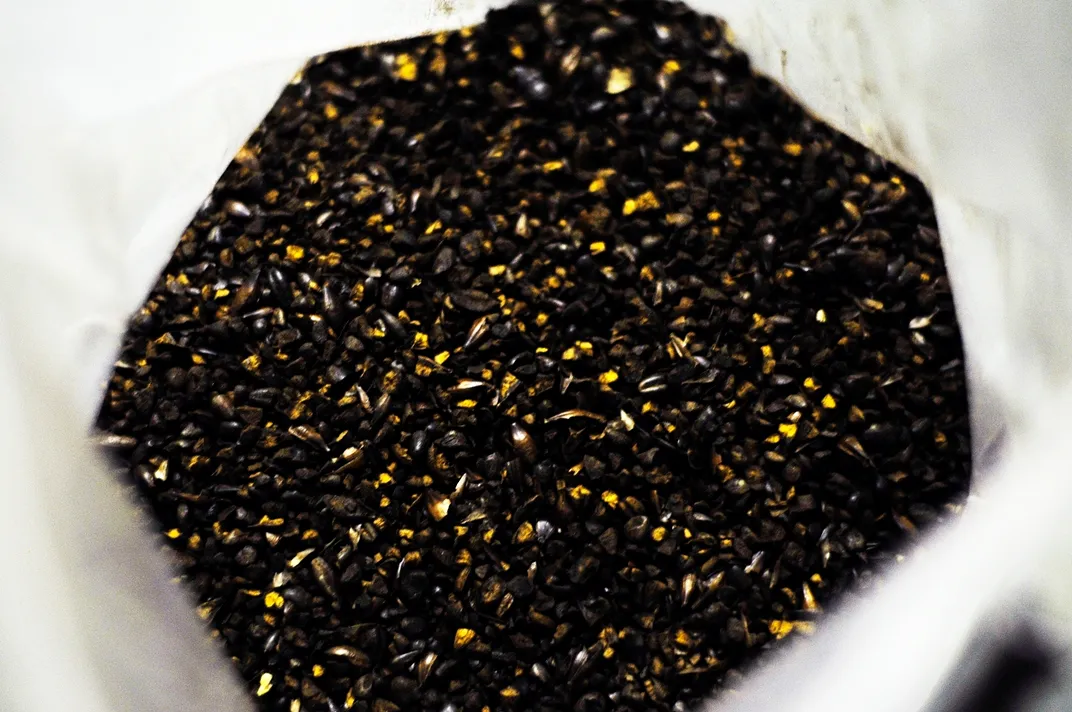
You start with four basic ingredients: water, malted and cracked barley, hops and yeast. This is all that is needed to make beer. And this is where the first problem arises. How much of each makes beer? There are a lot of nice websites that offer recipes, but there are really countless ways of making a recipe. This is where I think creativity can take over and where you can be different from other people, but once again if you stray too far from the pathway you will get lost. There are fixed "types" of beer: ales of lagers, i.e. warm or cold fermented beer. I prefer ales. Once you decided on ale, you choose the type of ale. You can try pale ale, or Belgium ales. I prefer IPA's, or India pale ales. Funny story why they call it that. I don't know if it is true, it is only what I heard: the beer that got transported to India didn't last on the ship with the long trips because it got spoilt. The brewers knew hops where preservatives, so they chucked a load of hops in the beer and there you have a very hoppy beer. They probably used more barley as well to get the alcohol higher and bring up the malty taste. Now that you decided on IPA, you need a recipe. There is a myriad of different recipes. You can use someone else's recipe, or you can write your own. My standard malt or barley I use, depending on availability, is something in the line of 80% pale ale malt, 20% speciality grains, for example caramunich, caramel malts, roasted malts and maize. If you brew beer you will be familiar with the wide range of variety of malts. The next consideration is hops. There is another long list of words I don't always know. I use cascade and centennial. Sometimes East Kent Golding. In South Africa there is also a wide variety of local hops. Change is as good as a holiday. I don't think I have ever brewed the same beer twice.
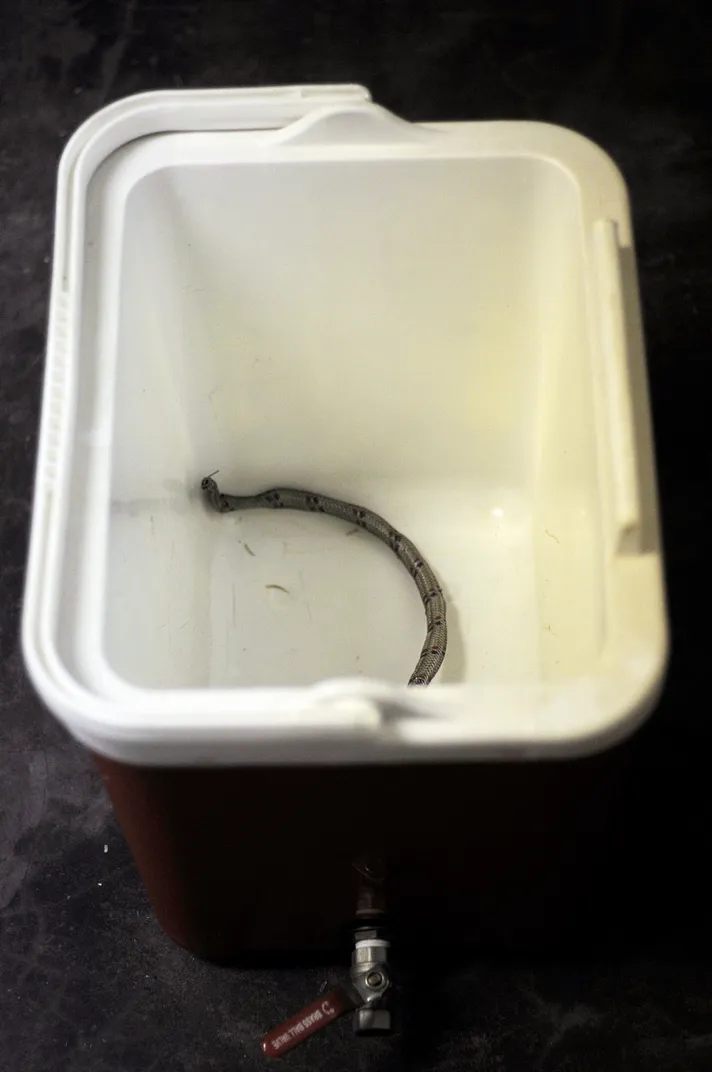
After you wrote down your recipe you fire up the HLT, or your hot liquor tank. In this vessel, you bring your water up to temperature, and introduce it to your mix of malted barley. The smell is unique. I love the smell. I yearn for it. You mix the water and barley, you make a type of porridge. This is called mashing, the above picture is my homemade mash tun. You let it sit for an hour and you drain the sticky sugary liquid. (They say the best drink on a cold morning while brewing is simply to take some of the wort and mix it with whiskey. Wort is the hot barley porridge liquid. Or more technical: it is unboiled beer.) It is very sweet. This will be boiled, the proteins will be broken down into smaller more digestible lengths for the yeast to eat.
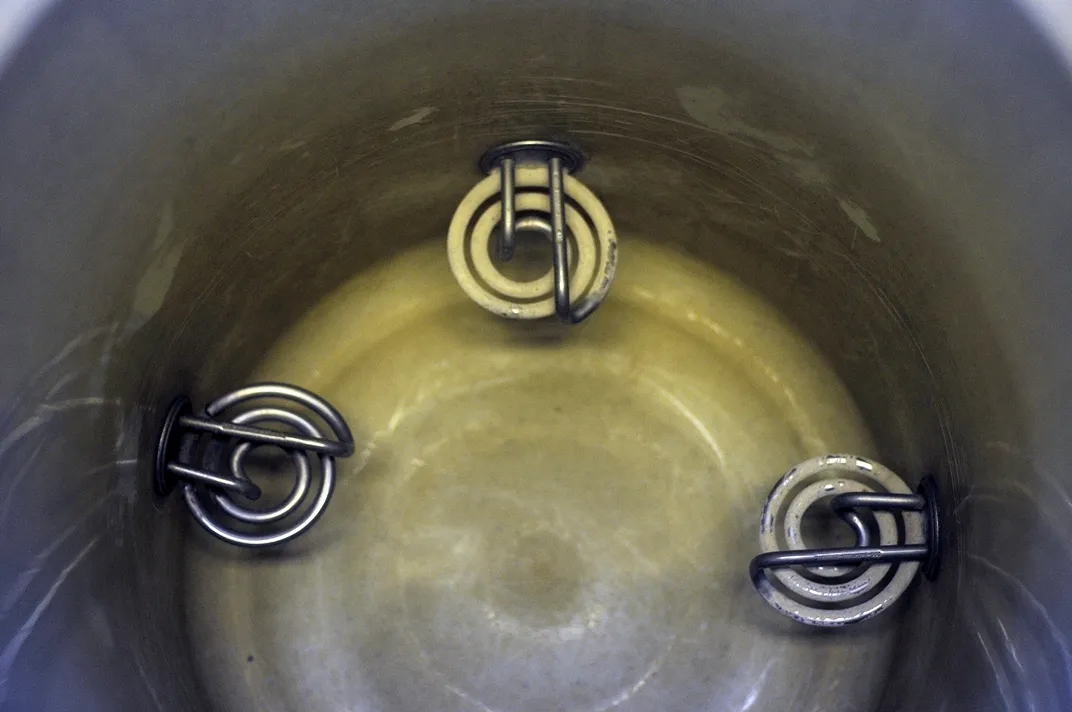
I made this simple thing called my boiler. With the help of my dad who knows something about electrical stuff, we broke up three kettles and installed it into a plastic bin (obviously bought new). It works like a charm. It brings almost 50 litres of wort to a boil in 25 minutes. This sugary liquid is boiled for an hour. In this stage you can add hops. If you throw the hops in at the start, it will make the beer bitter. If you throw it in at the halfway mark it will impart flavour. If you throw it in at the last five minutes it will impart smell. You can enhance the smell of hops if you dry hop your beer, in other words, while or after your beer fermented you put in more hops. After the boil, you need to chill the beer quickly and give it over to the yeast. This needs to be done quickly.
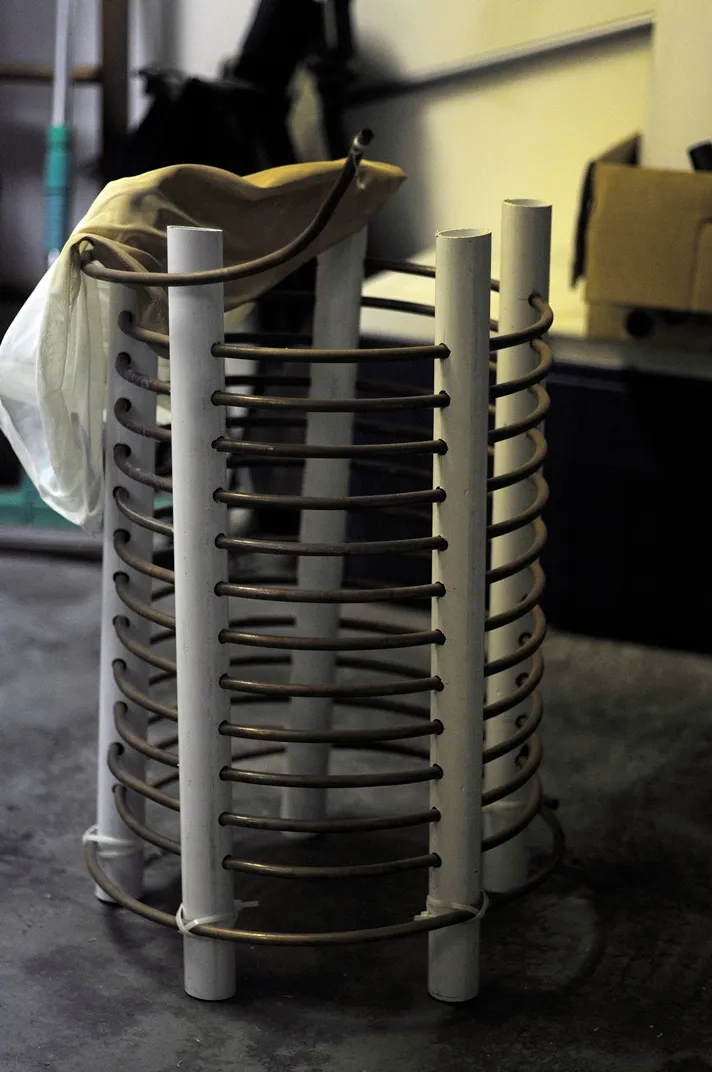
The boiling liquid needs to be at 20 degrees Celcius or room temperature for the yeast. Too warm and the yeast dies, too cold and the yeast will be asleep. Why is this important? It has to do with being contaminated. If you wait too long for the yeast to be activated or introduced into the beer, the chances of contamination get greater. Funny story. The first time it took me four hours, but luckily it was still a good beer. With the above homemade cooling device, I cool the beer in less than 20 minutes. I take some pride in saying that, because the cheapest cooling system you can buy in South Africa is really expensive. I made one for less than a quarter of the price.
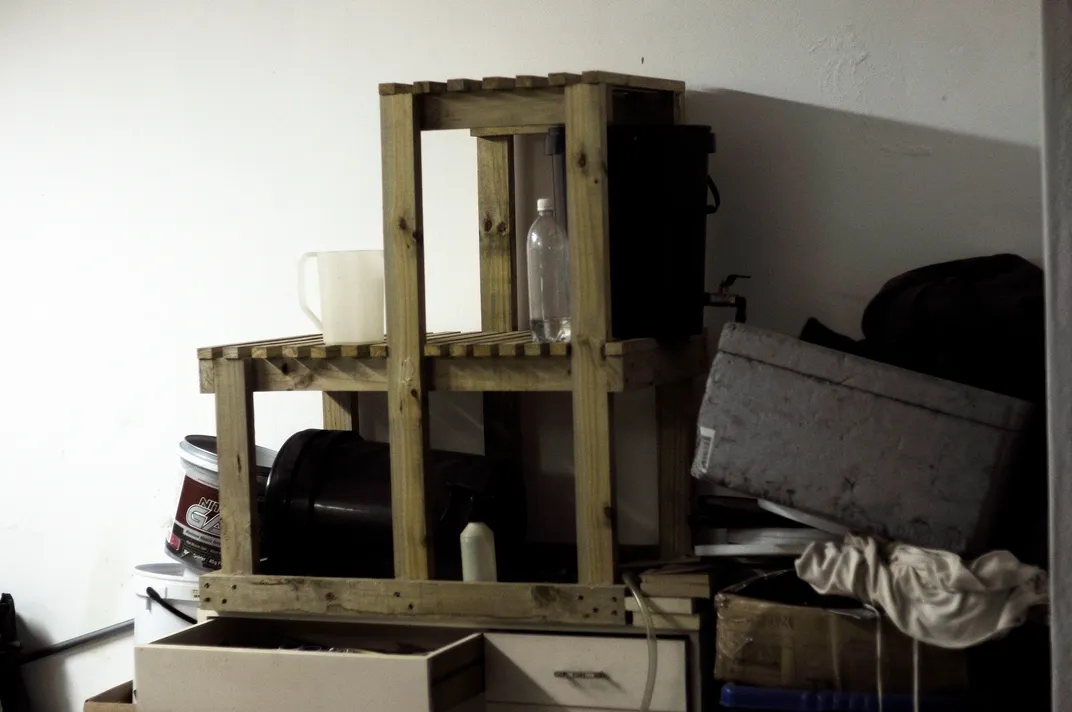
This is the stand I use: the principle behind it is the use of gravity. With no pump I can transfer the beer from the top to the bottom effortlessly. So once the beer is cooled down, the yeast is introduced and you put it away, the stress can come in. If you are like me, you will stress until the day you drink the beer. Firstly you take gravity sample. This will be important later, but all this is the amount of sugar you "pulled out" of the barley. Sugary water is denser than water. But now you wait. Two to three weeks. After this you pray before opening up the lid of your plastic bucket. If all is well the beer will have nice alcohol but no CO2, or carbon dioxide. But this is good. If you are like me, you will have a thousand old beer bottles gathered from friends and family who enjoy beer. You wash the bottle, sanitize them and introduce just a tiny amount of new sugar. The yeast will feed on this inside the clean beer bottles and produce CO2. But how?
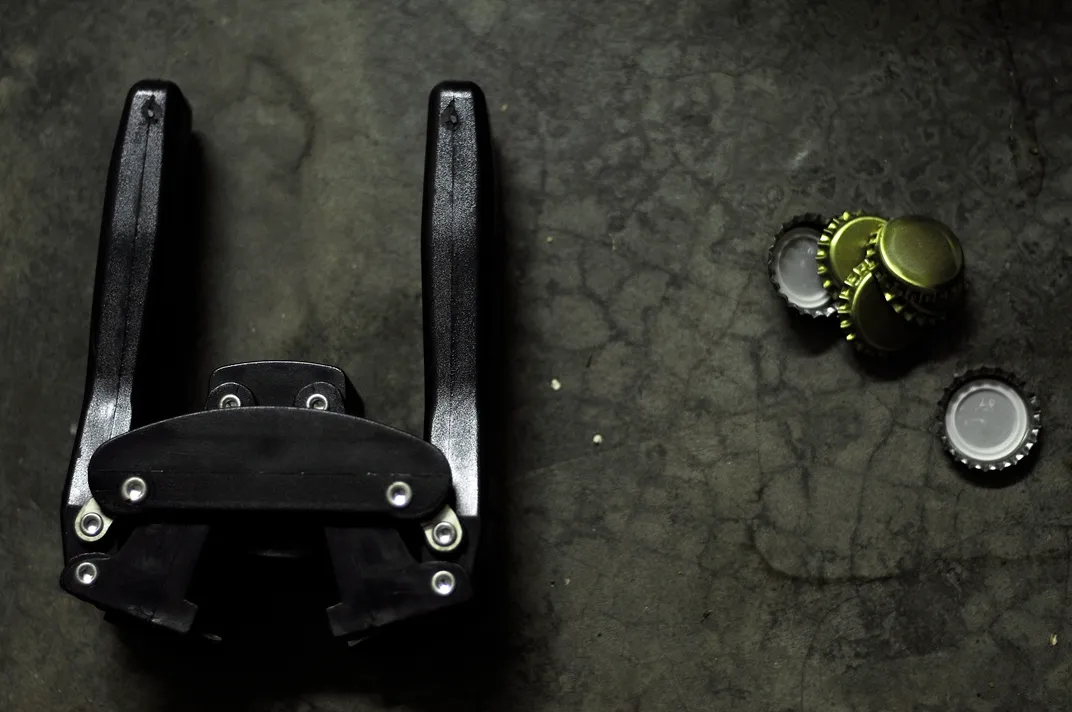
With the help of a small tool, you cap the beer bottles with a precisely filled amount of beer. But how does this flat beer get CO2? This is probably too late but why not talk some science or biology now. Yeast eats sugar and exhales alcohol and CO2. We drink in a sense the by-products of yeast, and yeast themselves. We can philosophize about the profound nature of well, nature, and thank the first brewers who stumbled upon this great treasure, but this has been done so many times already. The CO2 produced from the newly introduced sugar is forced back into the beer because of the closed system we created. And presto we have carbonated beer. This takes another three weeks. In total brewing your own beer will take roughly six weeks, minimum. I have some beers that are almost two years old and they are tasting amazing. Time is your friend.
My words are running out. I don't know if you are still reading this. If you are, thank you. If you scrolled from the top to here, hello my dear friend. How do we conclude this piece? It is hard to live authentically. One problem is that everything has already been done by someone. The other is that trying to do what others have not done, will make you stand in the spotlight. Sometimes this is not desirable. But it is a way of living authentically, by making the choice. Standing in front of the ordering list of your local homebrewer suppliers will make you face the reality of choice. You will need to choose. Your freedom to choose is scary, but embrace it. So too for everyday life. Choose to be different, because in difference we may find authenticity. Buy a beer from your shop, look at the beautiful white foamy head on top of the beer, smell it, and look at the skies. But don't look too deep into the sky, there is no manual written down for how to live authentically.
Sources
